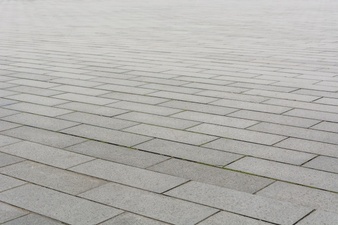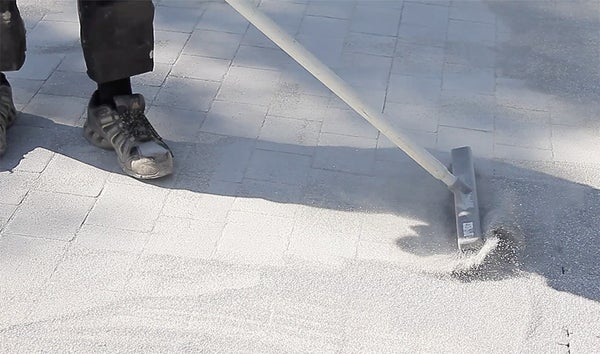Paving your outdoor area is a great choice, as pavers perform well, look good and make your outdoor area into a striking and beautiful space. But with such a wide choice of pavers – concrete, stone, brick, clay, porcelain, in all different colours, finishes, textures, shapes and sizes – it can be difficult and confusing to choose the best ones. Here are eight things to consider first, that will help you choose the perfect paver to complement your outdoor area.

Consider what you currently have
To ensure your pavers make your outdoor area shine in the best possible light, consider carefully what you already have there. Having detailed knowledge of what’s already in your area will allow you to choose concrete pavers that perfectly complement your current home. Consider:
- The period of the house (old style, modern, Queenslander?)
- The material and colour of the house (brick, timber, block, rendered?)
- The colour of the gutter and roof
- Your current decorating style (e.g. cosy, ultra-modern, minimalist, country-style etc.)
- The size of the area to be paved
Consider the natural elements
As well, consider the natural elements that will impact on your outdoor area:
- The terrain and soil type
- The amount of natural light available
- The prevailing weather conditions
- The location of your home
Consider the style you want to create
Choosing the best pavers is much easier if you have already settled on the style, look and aesthetic you want to create in your outdoor area. Perhaps you want to go for a modern and sleek looking area, in which case a large format paver would do the job best. Or you may want to go for a traditional, cosy-country look, where a smaller format paver in a warm colour might work well. Or perhaps you’re paving an industrial area, in which case you might need to choose larger pavers in shades of grey or charcoal, to minimise the appearance of dirt and stains and allow for ease of use.
There’s sure to be a paver to suit any style and look you want to create – so decide on your style first before you waste time looking at pavers.
Consider the size
The size of the area will play a role in determining the best type of paver to use. For instance, using smaller pavers can make your area look even smaller – not the best choice for a very small outdoor area where you want to maximise space.
Larger format pavers have fewer grout gaps, thus making the space appear bigger. Similarly, if you want to make an area feel more cosy, smaller format pavers will do the job better than larger ones. If you want to use your pavers to create elaborate designs and patterns, these will show to better advantage in a larger space.
Consider who will use the area
Is your area designed to be used by kids most of the time? Will your pets be spending a lot of time there? Is it a commercial premise that will be frequented by clients on a regular basis? Will cars, trucks and vehicles be using the area often? Answering these questions will help you decide which pavers will best perform in your specific circumstances.
For instance, if you’re paving an industrial driveway, you’ll need heavy-duty pavers that can withstand high volumes of vehicle traffic. If your children will be using it for a play area, you’ll need safe, non-slip and resilient pavers that are safe for kids to use and that can withstand spills and accidents. If you’re paving around a pool, you’ll also need non-skid and non-slip pavers that can be used around water.
Consider how often you’ll use the area
Will your area get daily, heavy use, or will you only use it on weekends and fine afternoons? Do you love to entertain in your outdoor area often, or do you prefer to enjoy your own company in the area and read or journal? Will you have frequent customers in your commercial area, or just occasional ones? The volume of traffic will determine what pavers can be suitably (and cost-effectively) used, as you don’t want to be re-paving the area all the time because your first choice wasn’t suitable.
Consider safety
Consider the slip-rating of any paver you choose, as well as how it reacts to sunlight. Certain types of pavers get more traction than others, and will provide better slip and skid-resistance. Other types of pavers are cooler to the touch in sunlight (concrete pavers are a great example – you can find a great range here: https://stoneworkspavers.com.au).
Consider your future plans
And lastly, consider your future plans for your area. Is it likely you’ll want to expand in the near future? Change the use of the area? Completely redecorate? Take these plans into consideration when choosing your pavers.
Once you’ve considered these eight items, you’ll have a much better idea as to which pavers will work best in your outdoor area. And these concrete pavers will do the job better than most in any outdoor area – have a look here: https://stoneworkspavers.com.au
